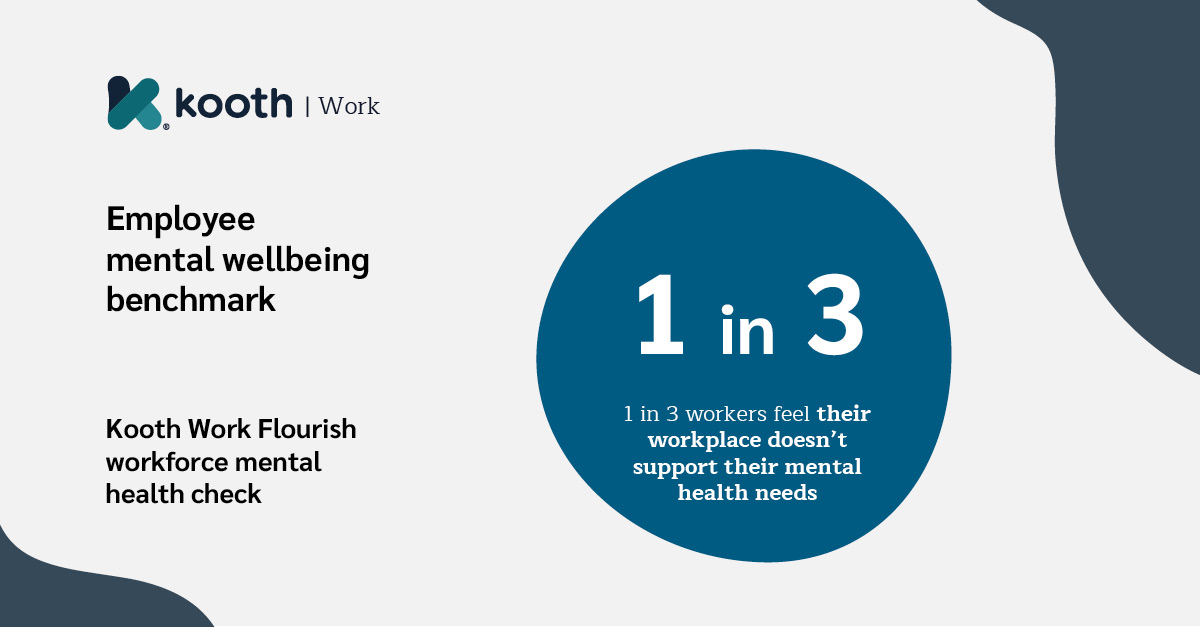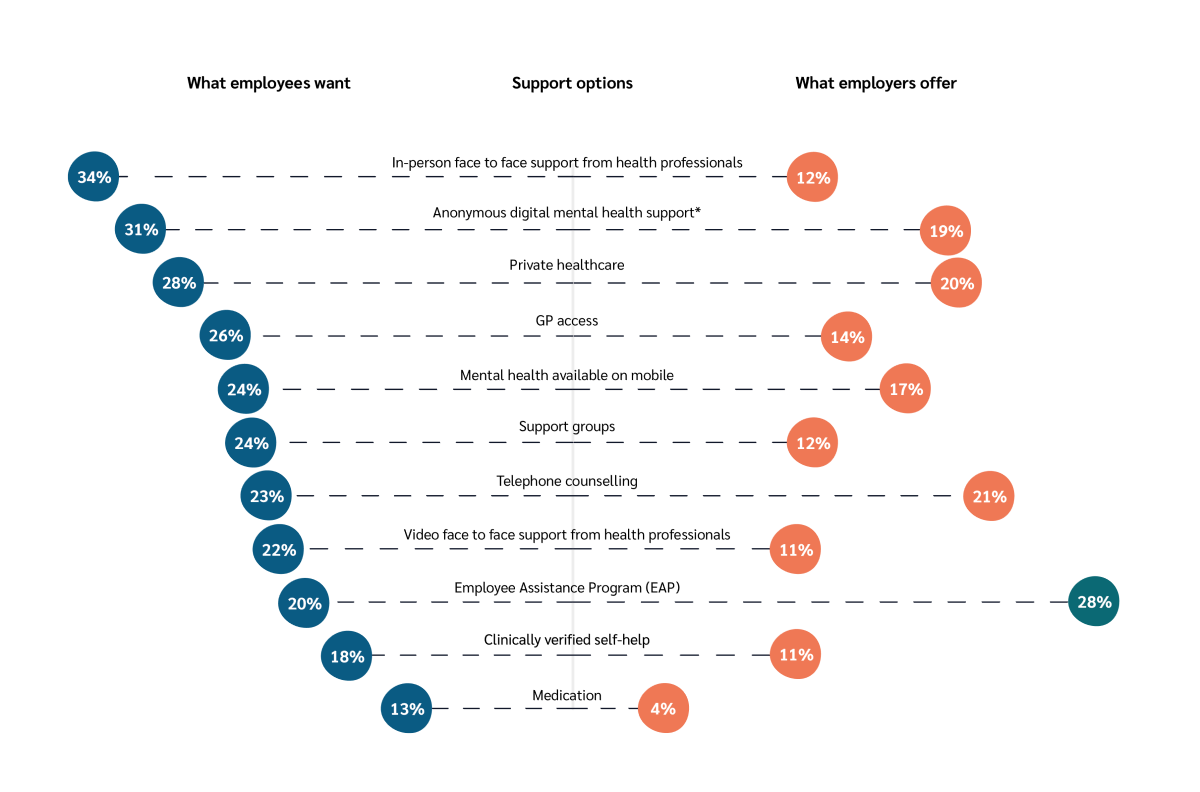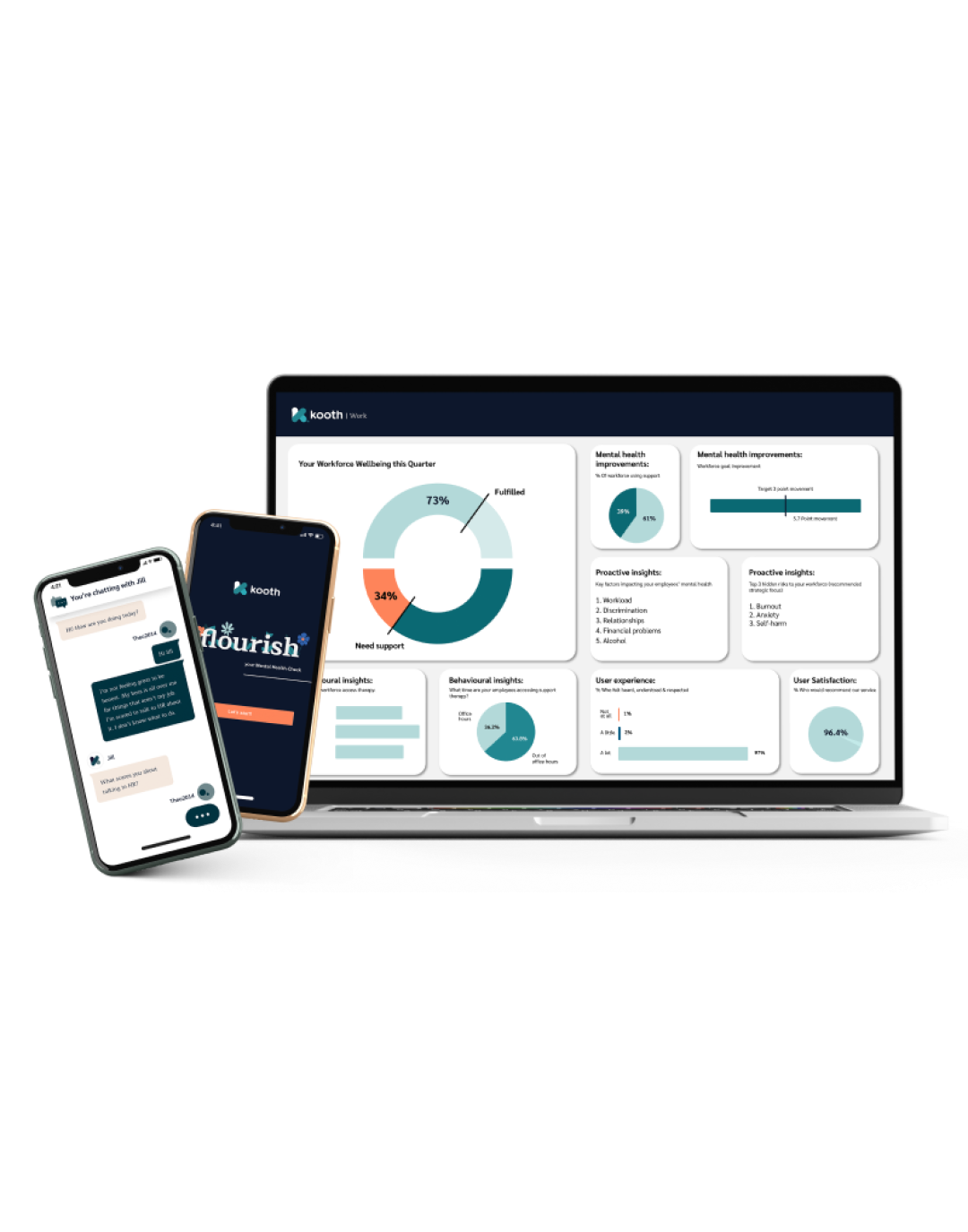Research reveals employers are missing the mark when it comes to employee mental health support
Just 18% of UK employees think their workplace does enough to support mental wellbeing.
That leaves over four-fifths of the workforce feeling unsupported, unheard, and unable to reach their full potential.
This statistic - derived from new Kooth Work data on what UK employees really want from workplace mental wellbeing support - may come as a shock, considering the significant increased traction that employee mental health and wellbeing is gaining. Thousands of organisations are finally investing more into tools and solutions in hope of better supporting their workforces, and many are making encouraging moves to develop psychologically safe spaces where their employees can thrive.
So, why are most employers still missing the mark?
A distinct gap between what is being offered and what employees need
The latest research from Kooth Work, which saw UK employees from key worker sectors completing the Flourish Workforce Mental Health Check, revealed a huge gap between the support employers are offering and what employees actually want.
Where most organisations are overserving on initiatives like Employee Assistance Programmes (EAPs) - which just 5% of respondents reported using - they are leaving many crucial requirements unfulfilled.
The report found that causes and outcomes such as stigma, poor communication, burnout and depression still appear rife amongst workforces. As a result, employees answering the survey urged for more - or better quality - support that specifically embodies anonymity, convenient access, and personalised insight from a clinical professional. Services that meet these needs such as anonymous digital mental health platforms, in-person support from professionals, and private healthcare, ranked as the top most wanted solutions. But alarmingly, also ranked towards the lower end of what employers are providing.
So although organisations are investing, it seems to be in the wrong places. One in three employees reported their workplace doesn’t support their needs, and 54% agreed their organisation must do more to improve employee wellbeing.

There are major gaps between in employers and employees when it comes to mental health support. Key areas such as communication, engagement and support options are missing the mark.
An urgent need to gain insight into workforce mental health
Tim Barker, CEO of Kooth, explains that this gap has resulted from organisations missing out on a crucial step:
“With an abundance of options on the market, it can be difficult to know what the ‘right choice’ is when it comes to workplace wellbeing. But like individuals, each company has unique mental health risks and experiences that require a personalised approach. There isn’t a one size fits all solution.
“What we are seeing is that many organisations are investing in wellbeing initiatives without first gaining this insight and understanding of the unique risks and needs of their workforce. This has left many employers without the results they need from wellbeing interventions, and of course, leaves many employees still feeling unheard and unsupported.
“Building an effective employee mental wellbeing framework requires you start at the frontline and work upwards. You must first get to know your workforce so you can make truly informed and impactful choices around employee mental health.”

Employers are investing in employee mental wellbeing support - but is it in the right places?
Kooth Work reveals a detailed view of workforce mental health
In a bid to help organisations better understand their workforce and what people actually want, the latest research from Kooth Work set out to ask employees crucial questions about workplace wellbeing.
The in-depth report explores how people feel about their existing wellbeing culture, what the current presenting issues are amongst workforces, and crucially, what workers really want and need when it comes to support.
To learn more about what your workforce needs and how you can make this happen, download your copy of Kooth Work’s “Missing the Mark” report today.






